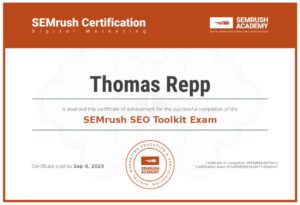 From my perch as an advisor to B2B industrials, I see a lot of pain when it comes to helping B2B’s transition to digital marketing.
From my perch as an advisor to B2B industrials, I see a lot of pain when it comes to helping B2B’s transition to digital marketing.
It shouldn’t be painful, but often is because of a mis-guided mindset dictated by years of promoting industrial sales the old way ...personal relationships, direct sales, industry events and word-of-mouth sales. The shift towards digital marketing, therefore, has been perceived as painful by some B2B industrials. The learning curve associated with understanding digital platforms, crafting compelling content, and targeting the right audience can indeed be steep and daunting.
However, it is essential to recognize that this pain is not intrinsic to digital marketing itself but rather a result of resistance to change. As the B2B business landscape evolves, embracing digital marketing is not just an option, but a necessity to stay competitive. The pain of transition is an investment in the future, as it paves the way for enhanced brand visibility, lead generation, and customer engagement.
Challenges of Digital Marketing for B2B Industrials
Complex Buying Cycles: B2B transactions often involve complex decision-making processes with multiple stakeholders. Navigating this intricate web requires tailored content that addresses the unique pain points and needs of each role, or each persona, as we like to call them. Crafting such content demands a deep understanding of the industry, which can be perceived as a challenge. A bit of creativity helps, as well.
Limited Resources: B2B industrials may operate with leaner teams and tighter budgets compared to their B2C counterparts. Allocating resources to digital marketing initiatives can strain these already stretched capacities, leading to a perception of pain.
Measuring ROI: The intangible nature of brand awareness and lead nurturing can make measuring the return on investment (ROI) for digital marketing efforts seem elusive. This challenge is compounded when traditional metrics are applied inappropriately to digital campaigns.
Technical Barriers: Implementing and managing digital marketing strategies often involves technical elements such as search engine optimization (SEO), pay-per-click (PPC) advertising, social media analytics, rolling out marketing automation platforms or learning how to use online research tools like SEMrush.com. These aspects can seem overwhelming to the mid-size B2B industrial crowd.
Lack of Patience: In my experience one of the biggest challenges is the lack of patience in the C-suite. Many times, I have seen owners excited to hop on the digital bandwagon, only to jump off after a year or two not seeing tangible results or ROI … just when their online brand visibility and content were gaining traction.
The is a marathon, not a sprint.
Turning Pain into Power: Leveraging Digital Marketing Opportunities
Targeted Reach and Personalization: Digital marketing empowers B2B industrials to pinpoint their ideal customers and deliver tailored messages that resonate. With robust analytics tools, they can track user behavior, allowing for personalized and effective communication.
Content as Authority: Through blogs (You have started blogging, haven’t you?), whitepapers, and educational videos, B2B industrials can prove themselves as thought leaders in your specific industry. Valuable content not only engages potential clients but also builds credibility and trust.
Lead Generation: Effective digital marketing strategies, such as lead magnets and email campaigns, can significantly boost lead generation efforts. Nurturing these leads through the sales funnel can result in a higher conversion rate and increased revenue.
National or Global Reach: Digital platforms break down geographical barriers, enabling B2B industrials to expand their market reach without the need for a physical presence in every region. This can lead to new business opportunities and increased revenue streams for regional B2B industries.
Data-Driven Insights: Digital marketing provides an abundance of data and analytics, offering valuable insights into customer behavior, preferences, and trends. Utilizing this data can improve strategic decisions and refine marketing efforts.
Cost-Effective Solutions: Contrary to the perception of high costs, digital marketing often offers cost-effective solutions compared to traditional marketing methods. Pay-per-click advertising, for instance, allows B2B industrials to allocate budgets efficiently and adjust campaigns in real-time based on performance. Long term SEO strategies are extremely effective if the right content is deployed by your B2B marketing team.
Overcoming Pain: Navigating the Digital Landscape
Education and Training: Investing in training programs for existing staff or hiring digital marketing professionals can mitigate the challenges associated with technical barriers.
Partnering with Experts: Collaborating with digital marketing agencies or consultants that specialize in B2B industrials can provide a tailored approach and alleviate the burden of resource constraints.
Measuring the Right Metrics: Shifting the focus from vanity metrics to metrics that directly impact business goals, such as lead quality and revenue generated, can provide a clearer picture of the ROI. From my experience, measuring search engine optimization to improve brand visibility (https://www.thereppgroup.com/industrial-marketing-strategy/5-must-haves-for-industrial-brand-visibility) is the first metric your B2B should pay attention to. The is the first incremental strategy and metric to follow. From here you can move on up the digital-tactic-ladder, but focusing on great content that builds great brand visibility is key.
Incremental Implementation: Rather than a complete overhaul, B2B industrials can start with small-scale digital marketing initiatives and gradually expand their efforts as they become more comfortable and confident.
Start by looking at your industrial brand.
Does your brand tell the real story of what makes your company tick? Then build a website, using marketing automation, which tells that story well. Then focus on deploying great content that drives your sales and marketing materials to the top of Google … or search engine optimization (SEO)
Now, in an incremental, painless, and manageable fashion, you have built your digital marketing strategy on a solid foundation. From that foundation you can start doing email marketing, video marketing, webinars, etc.
Much like a great athlete, your industrial company must start with the fundamentals. Building a well branded and highly visible website with great content builds that all-important foundation.
In Conclusion
The question of whether online or digital marketing should be painful for B2B industrials is not a binary one. While the transition may pose challenges, it is crucial to view digital marketing as an opportunity rather than a burden. The pain experienced during this transition is akin to the discomfort of growth, signaling a step towards adaptation and innovation in an ever-changing business landscape.
By recognizing the potential benefits and arming themselves with the necessary knowledge and resources, B2B industrials can not only navigate the digital landscape with confidence but also transform it into a powerful driver of growth, customer engagement, huge brand visibility and industry influence. Embracing digital marketing as a strategic imperative can redefine the future trajectory of B2B industrials, ensuring their relevance and success in the age of Google, mobile, social and AI.
Author:Tom Repp
A passionate marketer attempting to change the way industrial marketers leverage the web as a growth-oriented, lead generation machine. View all posts by Tom Repp






